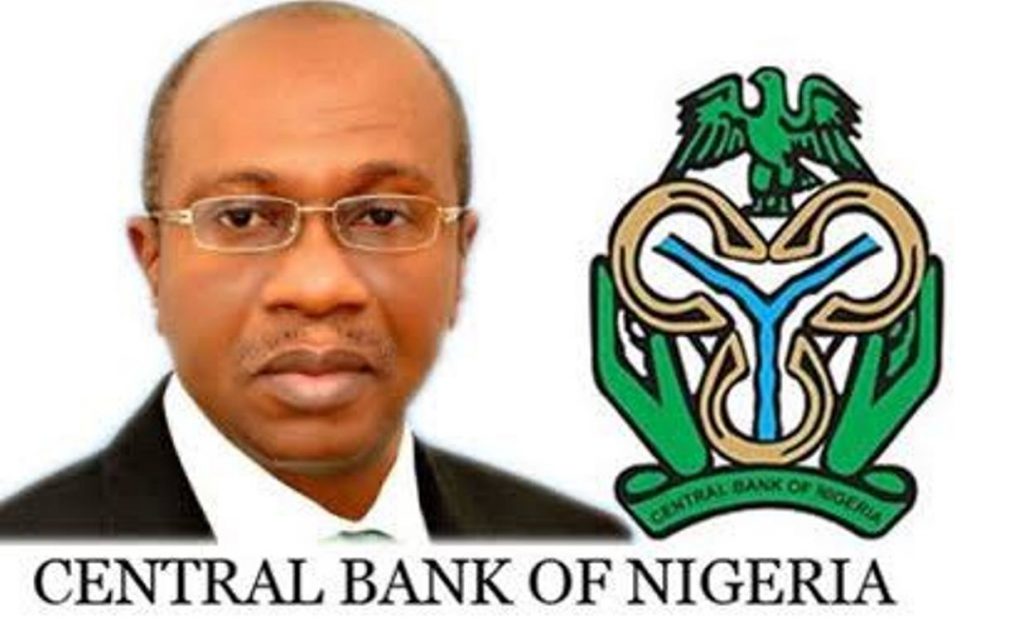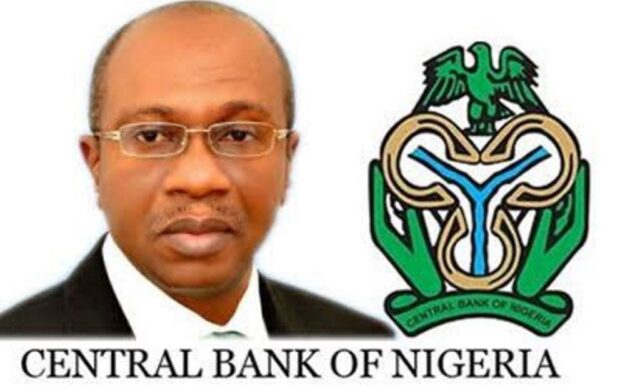Click here for Exclusive Pass To Live Event On New FX Policy With CBN Governor Emefiele SAT. 03/06/21
https://www.fidelitybank.ng/diaspora-webinar/

The Central Bank of Nigeria (CBN) has announced new policy measures in the country’s remittance programme, which affected money sent home by Nigerians in the Diaspora. These new rules how to transfer money from the UK to Nigeria was introduced with immediate effect.
We first published about these new rules on the 14th December 2020.
We need to add some additional information for showing you the fullest picture possible.
As regrettably a few operators continued to pay remittances in local currency contrary to the new regulations, the CBN provided additional operational guidelines.
- Switches and Processors should immediately cease all local currency (Naira) transfers in respect of foreign remittances through IMTOs
- All MMOs are required to immediately disable wallets from receipt of funds from IMTOs.
- Payment service providers are directed to cease integrating their systems with IMTOs going forward and must prevent comingling of remittances with other legitimate transactions.
- All IMTOs are required to immediately disclose to beneficiaries that they exercise discretion to receive transfer in foreign currency cash or directly into their domiciliary account.
- A central reporting portal for foreign remittances to be managed by the NIBSS (Nigerian Interbank Settlement System0 is currently under development to improve visibility of foreign remittances flow.
- All Naira payouts (cash or bank deposit) should cease immediately
- All licensed IMTOs that have agency relationship with Nigerian Banks can offer USD cash and USD bank deposit
- No CBN licensed IMTO should engage other licensed or unlicensed IMTOs to act as aggregator.
- Azimo and Transferwise are not registered IMTOs: https://www.cbn.gov.ng/Out/2020/CCD/CBN%20Disclaimer%20(December%2016%202020)%20%20%20-1.pdf
Here you can see our first publishes article on the 14th of December.
In a move to boost US Dollar supply into the economy, the Central Bank of Nigeria (CBN) announced on 30th November 2020, new rules that allow beneficiaries of diaspora remittances to receive US Dollar foreign currency either into their USD domiciliary (foreign currency) account or as cash pick-up from bank branches. Previously, beneficiaries of remittances could only receive the naira equivalent of the amount transferred while foreign currency cash withdrawal from domiciliary accounts was restricted to money paid into such accounts by cash lodgements.
In a circular titled “Amendment to procedures for receipt of diaspora remittances” that were issued on 30th November addressed to all authorised dealers and the general public, CBN’s Director, Trade and Exchange Department, Dr. O Nnaji, stated:
“In an effort to liberalize, simplify and improve the receipt and administration of diaspora remittances into Nigeria, the Central Bank of Nigeria (CBN) wishes to announce as follows.”
“Beneficiaries of diaspora remittances through International Money Transfer Operators (IMTOs) shall henceforth receive such inflows in foreign currency (US Dollars) through the designated bank of their choice.”
“Such recipients of remittances may have the option of receiving these fund in foreign currency cash (US Dollars) or into their ordinary domiciliary account.”
Dr. Nnaji continued by saying: “These changes are necessary to deepen the foreign exchange market, provide more liquidity and create more transparency in the administration of Diaspora Remittances into Nigeria.”
“In addition, these changes would help finance a future stream of investment opportunities for Nigerians in the Diaspora, while also guaranteeing that recipients of remittances would receive a market reflective exchange rate for their inflows.”
“All Authorized Dealers and the general public should note that beneficiaries shall have unfettered access and utilization to such foreign currency proceeds, either in cash and/or in their Domiciliary Accounts, in line with our circular TED/FEM/FPC/GEN/01/010. Please ensure strict compliance and be guided accordingly.”
This announcement was followed by a second circular issues on 2nd December again addressed to all authorised dealers and the general public wherein Dr. Nnaji explained:
“Further to the Circular Ref. No. TED/FEM/FPC/GEN/01/011 of November 30, 2020, on the above subject, we wish to reiterate and clarify to All International Money Transfer Operators (IMTOs) the following.”
“IMTO’s must ensure that all funds in favour of beneficiaries/recipients in Nigeria be deposited into the Agent Banks’ correspondent account.”
“Agent Banks (Deposit Money Banks) in Nigeria will be responsible for final payment to beneficiaries/recipients either in foreign currency cash (USD) or into the beneficiaries’/recipients’ domiciliary account in Nigeria.”
“The mode of payment either in cash or transfer is at the sole discretion of the beneficiaries/recipients. Please ensure strict compliance and be guided accordingly.”
Dr. Nnaji’s comments were followed by remarks from the Governor, CBN, Mr. Godwin Emefiele on 3rd December on improving remittance inflows into Nigeria which can also be found in full on the CBN website (www.cbn.gov.ng) accessible here. In his remarks the Governor said:
“Over the past few days, the Central Bank of Nigeria (CBN) has announced new policy measures in the country’s remittance programme, which are designed to boost and facilitate an efficient flow of remittances sent home by Nigerians in the Diaspora. These changes are as a result of our internal review of the operations of International Money Transfer Operators (IMTO) in the country and the potential impact improved flows could have on our economy.
“At this point, I believe it is important to provide a brief review of the history of IMTOs in the country along with the policy actions that have been taken in the past by the Central Bank of Nigeria. In 1996, following the promulgation of a new law which exempted remittances from taxes, the first remittance programme by an IMTO was launched in Nigeria. This private arrangement, with limited involvement by the Central Bank of Nigeria, was between an IMTO, Western Union and First Bank of Nigeria, which was then the only Western Union agent. Indeed, I am aware that at that initial stage, Western Union dealt with only First Bank directly, while First Bank of Nigeria, in turn, had other banks as sub-agents. This programme enabled recipients of remittances to receive such funds over the counter in foreign currency, amongst other options. Following the successful launch of this programme, other money transfer organizations launched similar initiatives to provide services to the growing number of Nigerians in the Diaspora who were keen on remitting funds back to Nigeria.”
“However, due to issues around dollar cash availability, some of the remittance operators working with the commercial banks decided to remit funds to recipients in our local currency, at an agreed exchange rate between the banks and the IMTOs. In 2016, the CBN, in an effort to increase remittance inflows and improve the number of formal channels under which Nigerians in the Diaspora could remit funds, launched a licensing regime to guide the conduct and operations of IMTOs. As a result of this new policy measure, 65 International Money Transfer Operators were licensed by the CBN for inbound remittances.

“Given the estimated annual remittance inflow of close to $24bn, which could help in improving our balance of payment position, reduce our dependence on external borrowing and mitigate the impact of COVID-19 on foreign exchange inflows into the country, the CBN sought to find ways to support improved remittance inflows into the country through official channels.”
“Based on this premise, we analyzed data on IMTO inflows into the country over the past year, and through our investigations discovered that some IMTOs, rather than compete on improving transaction volumes and create more efficient ways for Nigerians in the Diaspora to remit funds, resorted to engaging in arbitrage arrangements on the naira-dollar exchange rate, which to a large extent resulted in a significant drop in flows into the country. It also encouraged the use of unsafe unofficial channels, which also supported diversion of remittance flows meant for Nigeria, thereby undermining our Foreign Exchange management framework.”
“As a result, in an effort to boost remittance inflows and foster an environment that would enable faster, cheaper, and more convenient flow of remittances back to Nigeria, the Central Bank of Nigeria, on November 30, 2020, announced a new policy initiative, which would help to support these objectives. Please permit me to apprise you with the content of the new policy measures.”
“In an effort to liberalize, simplify and improve the receipt and administration of Diaspora remittances into Nigeria, the Central Bank of Nigeria (CBN) wishes to announce as follows.”
“Beneficiaries of Diaspora Remittances through International Money Transfer Operators (IMTOs) shall henceforth receive such inflows in foreign currency (US Dollars) through the designated bank of their choice. Such recipients of remittances may have the option of receiving these funds in foreign currency cash (US Dollars) or into their ordinary domiciliary account.”
“These changes are necessary to deepen the foreign exchange market, provide more liquidity, and create more transparency in the administration of Diaspora Remittances into Nigeria. In addition, these changes would help finance a future stream of investment opportunities for Nigerians in the Diaspora, while also guaranteeing that recipients of remittances would receive a market-reflective exchange rate for their inflows.”
“All Authorized Dealers and the general public should note that beneficiaries shall have unfettered access and utilization to such foreign currency proceeds, either in FX cash and/or in their Domiciliary Accounts, in line with our circular TED/FEM/FPC/GEN/01/010.
“Ladies and Gentlemen, in the course of following up on the implementation of the aforementioned new policies, the CBN observed some pushback by some of the IMTOs who were bent on undermining the new policies. This was the reason the CBN had to insist on Wednesday, December 2, 2020, that all DMBs MUST close all Naira General Ledgers through which the Naira remittances were hitherto being carried out.”

“Following the announcement of these new policy measures, the Central Bank of Nigeria, in an effort to enable smooth implementation, engaged with the commercial banks and the IMTOs to ensure that recipients of remittance inflows are able to receive their funds in the designated foreign currency of their choice. As a result of these engagements which took place with major IMTOs and the DMBs, today, Thursday, December 3, 2020, the stakeholders have committed that they would deploy all the necessary tools to ensure that these measures become effective from Friday, December 4, 2020. I therefore seize this opportunity to announce to Nigerians both at home and in the Diaspora, that the policy of recipients receiving their monies from abroad kicks off on December 4, 2020. All the IT systems of these IMTOs and the DMBs have been properly configured to begin remittance tomorrow, Friday, December 4, 2020.”
“In closing, we believe that these new policy measures would help in providing a more convenient channel for Nigerians in the Diaspora to remit funds back to Nigeria, as well as ensure that these funds can contribute to the overall development of our economy. Thank you for your attention!”
Click below for Exclusive Pass To Live Event On New FX Policy With CBN Governor Emefiele SAT. 03/06/21
https://www.fidelitybank.ng/diaspora-webinar/







